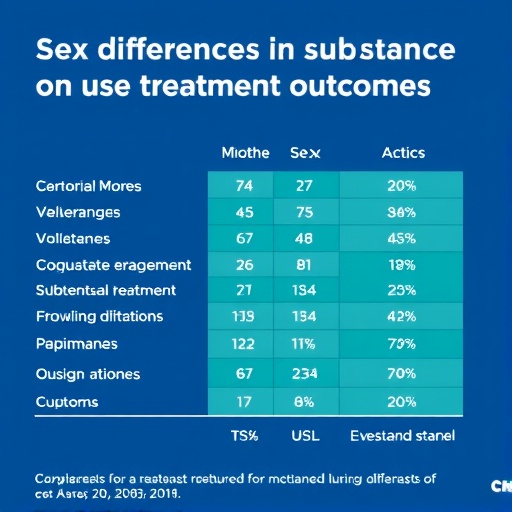
In the realm of psychological research and eating behaviors, the need for reliable and valid measurement tools cannot be overstated. An intriguing study has emerged from Turkey, where researchers Gultekin and Bozkir explored the psychometric properties of the Turkish version of the Salzburg Emotional Eating Scale (SEES). This study not only sheds light on emotional eating patterns in the Turkish population, but it also emphasizes the importance of culturally adapted tools in assessing psychological phenomena.
Emotional eating is a complex behavior, often triggered by emotional states rather than physiological hunger. People who engage in this behavior may find themselves consuming food in response to feelings such as sadness, anxiety, or even happiness. This phenomenon can significantly impact an individual’s health, leading to issues such as obesity and eating disorders. Understanding the emotional triggers behind eating habits is crucial for developing effective interventions and therapies tailored to diverse populations.
The Salzburg Emotional Eating Scale was originally developed to evaluate how emotions influence eating. Prior to the present study, the scale had not been adapted for Turkish speakers. The adaptation and validation of this tool serve as a necessary step in bridging the gap in psychological assessments across cultures. By ensuring that measurement tools are not only linguistically translated but also culturally relevant, researchers can gather more accurate data that reflects the experiences of the population being studied.
Gultekin and Bozkir aimed to evaluate the reliability and validity of the Turkish SEES through a comprehensive psychometric analysis. This involved a series of assessments focusing on both the consistency of the scale when applied to Turkish individuals and its ability to accurately measure what it purports to measure. The rigorous testing provided insights into the scale’s construct validity, ensuring that it captures the emotional dimensions of eating behavior adequately.
Their research employed a diverse sample, gathering data from individuals across different demographics, which is essential in ensuring that the findings are generalizable. The inclusion of various age groups, genders, and socio-economic statuses allowed for a more nuanced understanding of emotional eating behaviors within the Turkish context. This broader perspective is vital, as emotional eating does not manifest uniformly across different segments of the population.
Statistical analyses were employed to assess internal consistency and test-retest reliability. This is particularly important in psychometric studies, as it establishes whether the instrument produces stable results over time. The authors reported satisfactory reliability coefficients, indicating that respondents’ scores on the Turkish SEES were consistent when measured at different times. This level of reliability speaks volumes about the robustness of the adapted scale for research use.
Validity tests were equally critical, as they assess the degree to which the scale accurately reflects the emotional eating construct. The researchers conducted exploratory factor analyses, which revealed that the Turkish SEES aligned well with the original model. This confirmation of construct validity indicates that the Turkish version effectively measures the same emotional eating dimensions identified in the original scale, underscoring the importance of cross-cultural adaptations in psychological measurement.
Moreover, the research also delved into the external factors contributing to emotional eating in Turkey. It was particularly revealing to see how cultural, social, and economic factors interplay in shaping eating behaviors. Turkish culture, with its rich culinary traditions and social gatherings centered around food, can exacerbate emotional eating tendencies. The findings indicate that understanding these cultural factors is not only beneficial for assessing emotional eating but also for developing culturally sensitive interventions.
As emotional eating is often stigmatized, it is essential to raise awareness and foster understanding about this behavior. The Turkish SEES can serve as a valuable tool for clinicians and researchers alike, enabling them to identify individuals who may be struggling with emotional eating. By recognizing the underlying emotions tied to eating habits, therapists can offer more personalized and effective treatments to address these issues.
In a broader context, this study contributes to the growing body of literature emphasizing the importance of culturally relevant psychological assessments. As globalization increases and cultures interact more than ever before, the tools employed in psychological research must keep pace. This research demonstrates that adapting instruments like the SEES for different cultural settings can yield significant insights into human behavior.
In conclusion, the psychometric evaluation of the Turkish version of the Salzburg Emotional Eating Scale offers a significant advancement in the field of psychological research. Gultekin and Bozkir’s work highlights the importance of cultural sensitivity in psychological assessment. Their rigorous methodology and findings pave the way for future research and clinical practice aimed at understanding and addressing emotional eating in diverse populations. Such advancements not only contribute to the field of psychology but also hold implications for public health, nutrition, and overall well-being.
This study exemplifies how meticulous research and cultural considerations can lead to breakthroughs in understanding complex behaviors like emotional eating, ultimately fostering healthier societies and promoting psychological resilience. The journey to unraveling the intricacies of human behavior continues, and the Turkish SEES stands as a testament to the importance of tailored research instruments in this quest.
Subject of Research: Emotional Eating in the Turkish Population
Article Title: Reliability and validity of the Turkish version of the Salzburg emotional eating scale: a psychometric study
Article References:
Gultekin, A., Bozkir, C. Reliability and validity of the Turkish version of the Salzburg emotional eating scale: a psychometric study.
J Eat Disord 13, 197 (2025). https://doi.org/10.1186/s40337-025-01359-y
Image Credits: AI Generated
DOI: 10.1186/s40337-025-01359-y
Keywords: Emotional Eating, Psychometrics, Turkey, Salzburg Emotional Eating Scale, Cultural Adaptation
Tags: cross-cultural assessment in psychologyculturally adapted psychological toolsemotional eating behaviorsemotional triggers in eating habitsinterventions for emotional eatingobesity and eating disorderspsychological phenomena in diverse populationspsychological research in Turkeypsychometric properties of scalesreliability of measurement toolsTurkish Salzburg Emotional Eating Scalevalidation of emotional eating scales




